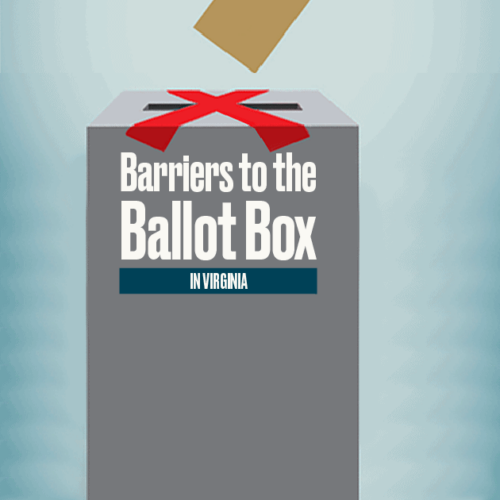Introduction
Recent reforms in Virginia have made it far easier for voters to cast a ballot, but some residents with prior felony convictions will still be excluded this election cycle.
“It should say something that the Department of Elections has put out a 25-page document of all the changes that came out this legislative session,” said Jenny Glass, director of advocacy for the American Civil Liberties Union of Virginia.
Sign up for The Moment newsletter
Our CEO Susan Smith Richardson guides you through conversations and context on race and inequality.
During this year’s legislative session, lawmakers nixed the requirement that voters have to have a qualified excuse to vote absentee; no excuses are needed now. Virginia also repealed the requirement that voters present a photo ID, and the state now automatically registers residents to vote when they interact with the Department of Motor Vehicles.
The changes have perhaps resulted in a surge in early voting. Virginia voters have returned the second highest number of absentee and mail-in ballots in the country so far, second only to Florida.
Virginia used to be ranked as one of the most difficult states to cast a ballot in, but that’s likely changed after the most recent legislative session.
“Historically, we’ve been awful,” especially to voters of color, Glass said.
Here’s a look at some of the most significant barriers to voting rights and access in the state:
Felony disenfranchisement
Residents who have been convicted of felonies are still permanently barred from voting in Virginia — unless the governor signs off to restore their rights once they’re no longer under supervision. That law is baked into the state’s constitution, and Glass said changing it would require a lengthy, complicated process and voter approval.
Virginia is one of just three states that permanently disenfranchises people with felonies.
Former Virginia Gov. Terry McAuliffe, a Democrat, tried to restore voting rights to more than 200,000 formerly incarcerated people with felonies through an executive order in 2016, but courts blocked the order. McAuliffe then signed off on about 173,000 individual restoration orders in his term, which the state’s constitution permits. His successor, Gov. Ralph Northam, a Democrat, has restored voting rights for tens of thousands more people.
Voter registration deadlines
Some states allow residents to register to vote the day of the election — but Virginia is not one of them.
Residents must register at least 21 days before the election in order to be eligible to vote.
“The longer someone has to think about the election before participating, the worse it affects turnout,” Glass said.
Virginia’s deadline to register is Oct. 13.
Read more in Money and Democracy
US Polling Places
Felony disenfranchisement is one of the only remaining barriers to voting in Washington
Automatic voter registration and same-day registration make it easier for residents to cast a ballot.
US Polling Places
In West Virginia, one barrier to voting removed, other stumbling blocks still in place
The state will allow anyone to vote by mail this year. But officials could do more, advocates say.


Join the conversation
Show Comments